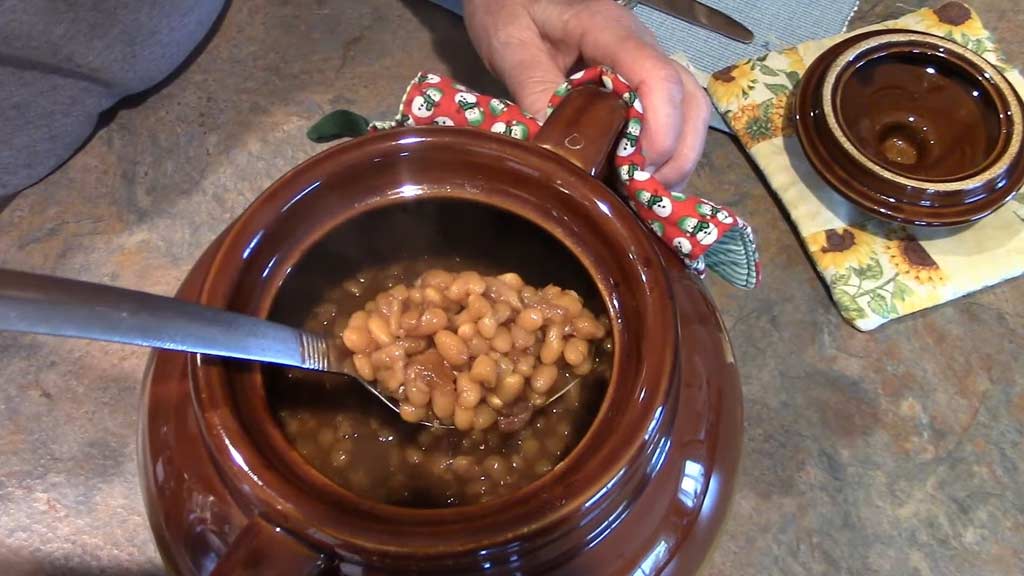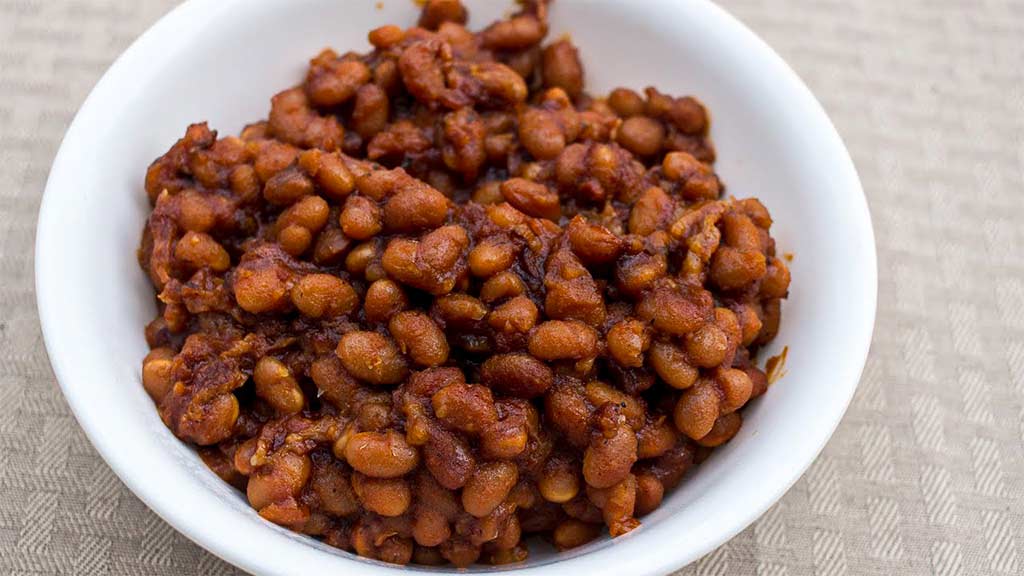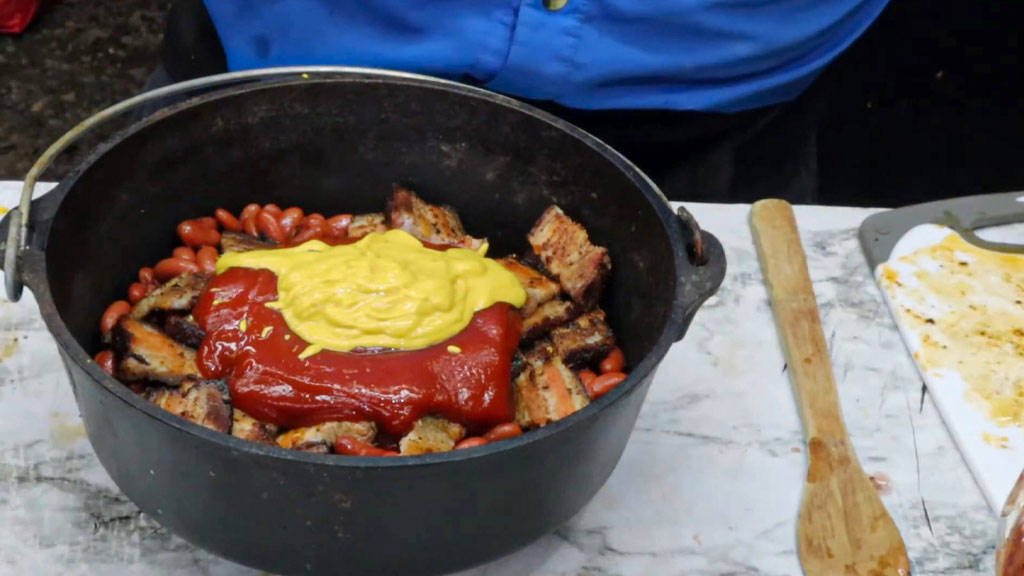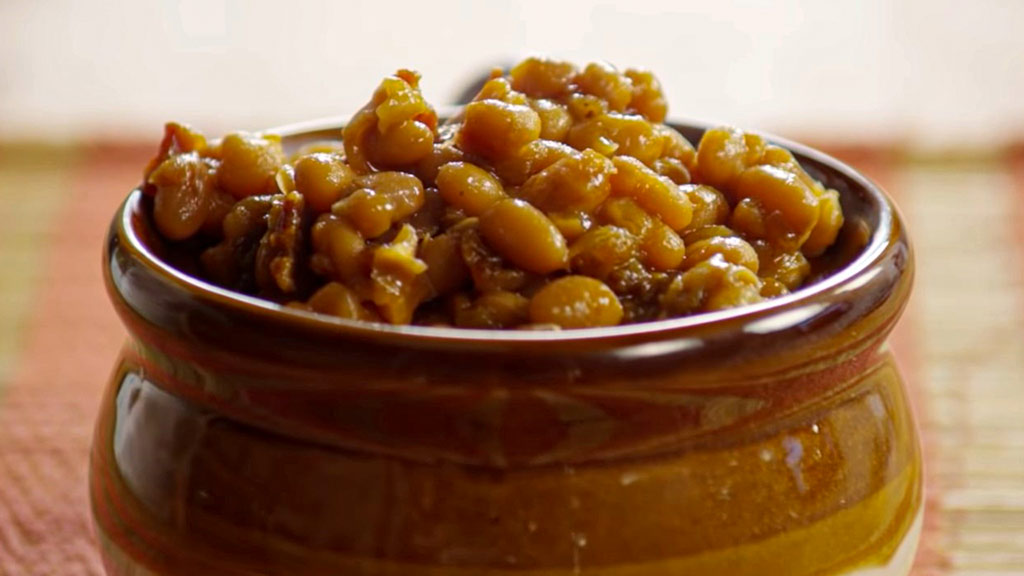Boston Baked Beans, a culinary emblem of New England, traces its roots to a fascinating interplay of historical events and cultural influences.
What makes these hearty beans synonymous with Boston, and why are they steeped in such rich history? The answer lies in the Triangular Trade of the 17th and 18th centuries.
This triangular commerce brought molasses to the bustling port of Boston, igniting a culinary revolution.
Native American techniques, colonial adaptations, and the flourishing rum industry further shaped the evolution of the iconic dish.
As we delve into the history of Boston Baked Beans, we unravel a tale of trade networks, cultural melding, and gastronomic innovation that has left an indelible mark on American culinary heritage. Stay sharp.
Connection of The Triangular Trade to Boston Baked Beans History

The Triangular Trade, a historical trade network between Europe, Africa, and the Americas, significantly influenced the history of Boston Baked Beans.
In the 17th and 18th centuries, Boston, a key American port, played a crucial role in this triangular commerce.
The trade involved the exchange of goods, including molasses from the West Indies, a vital component in the production of Boston Baked Beans.
Molasses, a byproduct of sugar production, became abundant in Boston due to the trade. Colonists began using molasses to sweeten and flavour baked beans, creating a distinctive regional dish.
Boston Baked Beans’ popularity grew, eventually becoming a staple in New England cuisine.
Molasses Importation
The Triangular Trade facilitated the importation of molasses from the West Indies to Boston. This surplus of molasses became a key ingredient in Boston Baked Beans, contributing to its unique flavour profile and sweetness.
Economic Impact on Boston
Boston’s active involvement in the Triangular Trade, particularly in the 17th and 18th centuries, had significant economic implications.
The trade boosted the city’s economy and created a demand for molasses, shaping the culinary landscape and influencing local recipes.
Integration into Culinary Tradition
The influx of molasses from the Triangular Trade played a pivotal role in the evolution of Boston Baked Beans.
Once a byproduct of the trade, this ingredient became integrated into the dish, showcasing the intersection of international trade, economic factors, and regional culinary traditions.
The historical connection between the Triangular Trade and the availability of molasses in Boston influenced the culinary landscape, shaping the iconic status of Boston Baked Beans in American food history.
Rum Production and Molasses in Boston as a key ingredient in Baked Beans

Boston Baked Beans, a quintessential dish in American cuisine, has deep historical roots connected to the Triangular Trade and, more specifically, the production of rum and molasses.
In the 17th and 18th centuries, Boston’s pivotal role in the trade network influenced the local culinary scene, leading to the creation of this iconic dish.
Triangular Trade Nexus
Boston was a key player in the Triangular Trade, with ships transporting goods between Europe, Africa, and the Americas. Molasses, a byproduct of Caribbean sugar production, became a significant import to Boston.
Molasses as Sweetener
The surplus of molasses in Boston prompted colonists to explore culinary uses. With its distinct sweet flavour, Molasses became a popular sweetener and flavouring agent in local recipes.
Rum Production Boom
The molasses imported to Boston were crucial ingredients in local rum production. Distilleries in the region flourished, contributing to the city’s economic prosperity.
Rum and Baked Beans Connection

Molasses, a byproduct of rum production, found its way into the traditional Boston Baked Beans recipe. The sweet and robust molasses flavour complemented the beans, creating a distinctive and beloved dish.
Culinary Adaptation
Colonists, adapting to the available resources, slow-cooked navy beans with molasses, salt pork, and spices. This cooking method transformed a simple dish into a hearty, flavorful meal symbolising New England cuisine.
Legacy in American Cuisine
Over time, Boston Baked Beans became ingrained in American culinary traditions, symbolizing the fusion of international trade influences, the use of local resources, and the resilience of colonial culinary practices.
Today, the dish stands as a testament to the historical and gastronomic intertwining of the Triangular Trade, rum production, and Boston’s culinary heritage.
Evolution of Boston Baked Bean Recipes
The evolution of Boston Baked Bean recipes reflects the dynamic culinary history of the region, incorporating influences from various cultural and historical developments.
Native American Influence

Before European settlers arrived, Native American tribes in the region had a rich tradition of cooking beans in earthen pits, often flavoured with maple syrup or bear fat.
This early method set the stage for incorporating beans as a staple in the New England diet.
Colonial Adaptation
Early colonists, interacting with and learning from Native American communities, adopted techniques such as slow cooking and introduced new ingredients like molasses and salt pork.
This infusion of flavours elevated the humble beans to a more nuanced and satisfying dish.
Triangular Trade Impact
The Triangular Trade, connecting Europe, Africa, and the Americas, profoundly influenced the culinary landscape of Boston.
The importation of molasses from the West Indies became a defining element in Boston Baked Beans, adding a layer of sweetness and complexity.
Rum Connection
With molasses in abundance due to the Triangular Trade, Boston became a hub for rum production.
Molasses, the byproduct of this industry, naturally found its way into baked bean recipes, forming a unique connection between the dish and the local economy.
19th-Century Innovations
Advancements in cooking technology during the 19th century, including introducing bean pots and stoneware, revolutionized the preparation of Boston Baked Beans.
Slow cooking became more efficient, enhancing the dish’s flavour and texture.
Canned Beans and Convenience
In the 20th century, the widespread availability of canned beans marked a shift in the preparation of Boston Baked Beans.
While traditionalists continued to use dried beans, many embraced the convenience of canned varieties, streamlining the cooking process.
Modern Variations
Contemporary adaptations showcase the versatility of Boston Baked Beans. Experimentation with different bean varieties, spices, and alternative sweeteners has led to diverse recipes.
Some even incorporate unconventional elements like mustard, vinegar, or coffee, reflecting evolving tastes.
Vegetarian and Health-Conscious Versions

Responding to changing dietary preferences, vegetarian and health-conscious versions of Boston Baked Beans have gained popularity.
These adaptations often replace traditional pork with plant-based substitutes and explore alternative sweeteners, catering to a broader audience.
Culinary Heritage and Symbolism
Despite the evolution of ingredients and preparation methods, Boston Baked Beans have retained their symbolic significance as a representation of New England’s culinary heritage.
The dish is a flavorful testament to the region’s history, adapting to changing times while preserving its cultural identity.
The enduring popularity of Boston Baked Beans attests to the dish’s ability to transcend time, weaving together the threads of tradition, innovation, and cultural influence.
The popularity of Boston Baked Beans
The popularity of Boston Baked Beans extends far beyond its New England origins, making it a beloved and iconic dish with a rich history and cultural significance.
- Historical Roots: Boston Baked Beans have deep historical roots, dating back to the colonial era. This connection to early American history contributes to the dish’s enduring popularity.
- New England Tradition: As a staple of New England cuisine, Boston Baked Beans hold a special place in the region’s culinary traditions. It is often associated with family gatherings, holidays, and community events.
- Culinary Symbolism: The dish symbolizes the resourcefulness of early colonists who adapted Native American cooking methods, incorporated ingredients from the Triangular Trade, and created a unique regional speciality.
- Flavour Profile: The combination of slow-cooked beans, molasses, and salt pork creates a distinctive sweet and savoury flavour profile that appeals to various tastes. The rich and hearty nature of the dish contributes to its popularity.
- National Recognition: Boston Baked Beans have gained recognition and popularity beyond New England, symbolising American culinary heritage. Many associate the dish with comfort food and traditional American cooking.
- Cultural Celebrations: Boston Baked Beans are often featured in celebrations and events, particularly during patriotic holidays like Independence Day. Its presence in cultural festivities further solidifies its popularity.
- Adaptability: The dish’s adaptability to various dietary preferences, including vegetarian and vegan versions, has increased its popularity among diverse audiences.
- Nostalgia and Tradition: Boston Baked Beans evoke a sense of nostalgia and tradition for many, as it is a dish that has been passed down through generations. This connection to family heritage enhances its appeal.
FAQs
Why are Boston Baked Beans associated with molasses?
Boston Baked Beans are linked to the Triangular Trade, where molasses became abundant in Boston.
The surplus influenced local cuisine, incorporating molasses in the recipe, adding a distinctly sweet flavour to the traditional dish.
How did the Triangular Trade impact Boston’s Baked Beans?
The Triangular Trade brought molasses, a key ingredient in Boston Baked Beans, to Boston.
The trade network’s influence shaped the culinary landscape, contributing to the dish’s unique flavour and establishing it as a regional speciality in New England.
What role did rum production play in the history of Boston Baked Beans?
Rum production in Boston was closely tied to the Triangular Trade, utilizing molasses as a key ingredient.
Molasses, the byproduct of this industry, found its way into the baked beans recipe, creating the sweet and robust flavour associated with the dish.
How have Boston Baked Beans recipes evolved over time?
The dish evolved from Native American cooking methods to colonial adaptations using molasses and salt pork.
The Triangular Trade introduced new influences, while innovations in the 19th century and modern variations reflect changing tastes, resulting in a rich culinary history.
Why is Boston Baked Beans still popular today?
Boston Baked Beans remain popular due to their deep historical roots, association with New England traditions, and distinctive flavour profile.
The adaptability of the dish to diverse dietary preferences, its presence in cultural celebrations, and its commercial availability also contribute to its enduring popularity.
Wrapping Up
In tracing the history of Boston Baked Beans, we uncover a culinary journey shaped by the Triangular Trade, molasses abundance, and the ingenuity of early colonists.
From Native American influences to the flourishing rum production in Boston, the evolution of this iconic dish reflects a dynamic interplay of cultural, economic, and gastronomic factors.
Today, Boston Baked Beans symbolise New England’s rich culinary heritage, resonating with nostalgia, tradition, and a distinctive sweet-savoury flavour that has transcended centuries. Thank you very much.
Timothy Russell Dewart